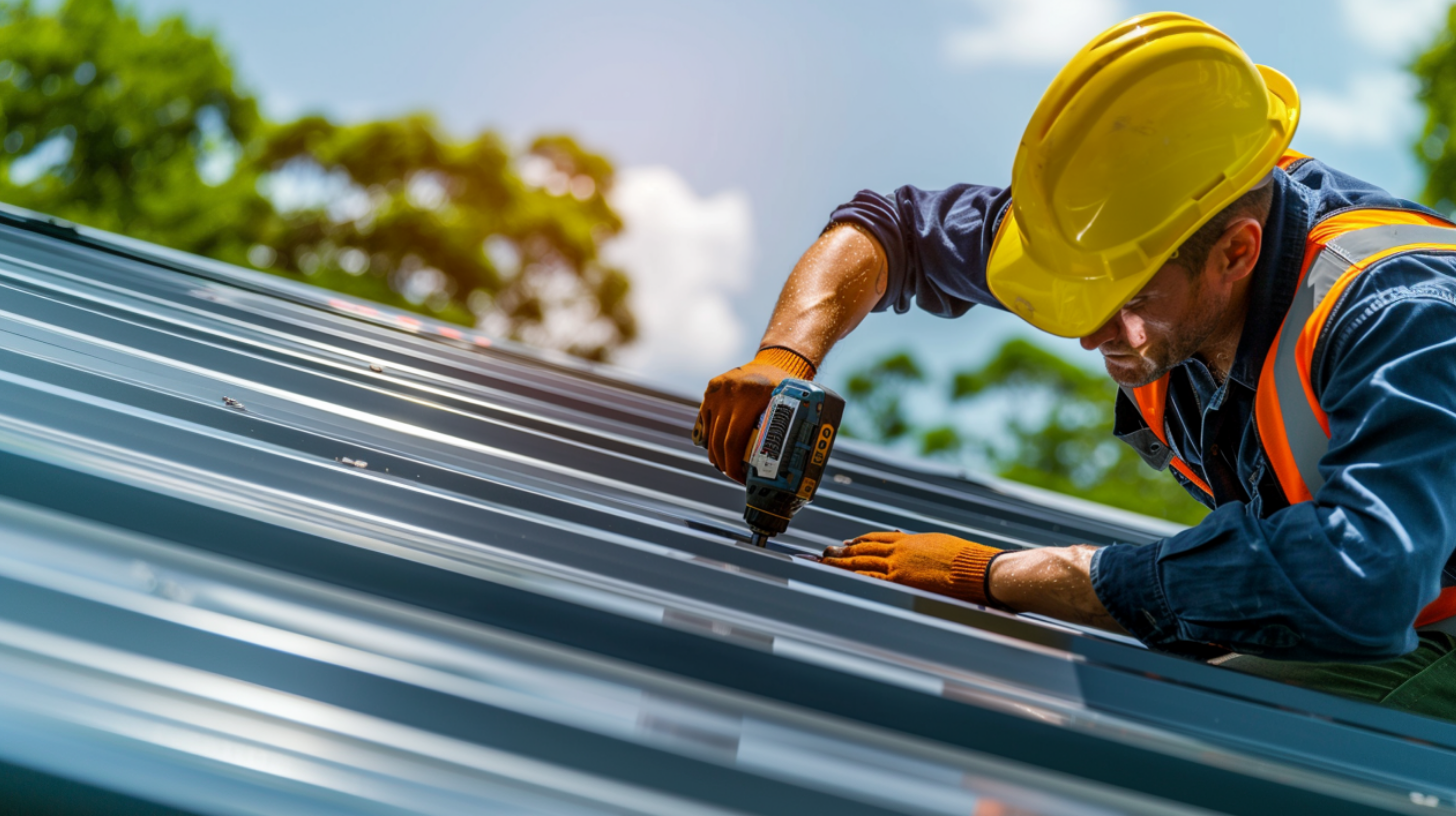Introduction to Standard Installation of Roofing
Pre-Installation Preparations for a Smooth Roof Installation
Following this, an initial roof inspection is essential to identify any underlying issues affecting the installation process. Equally important is selecting the suitable roofing material, which should be based on the local climate and environment. Choosing the appropriate material ensures durability and resilience against the elements, enhancing the roof’s longevity.
These preparatory steps form the foundation for a sound roof. Careful planning optimizes the installation process and safeguards homeowners’ investments in their property. By prioritizing these initial stages, you pave the way for a roofing solution that meets aesthetic and functional needs, enhancing the property’s overall value.

Standard Installation - Roofing Installation Process - Sky Roofing Construction & Remodeling
The Standard Roofing Installation Process

Standard Installation - Factors Influencing a Roof Installation - Sky Roofing Construction & Remodeling
Factors Influencing a Standard Roofing Installation
Roof Type and Design
For instance, asphalt shingles offer a straightforward application, making them a popular choice for homeowners seeking a cost-effective solution with lower labor costs calculated per square foot. Conversely, more complicated roofs may require labor-intensive materials like slate or tile, which demand specialized skills and significantly increase installation complexity and project size.
Furthermore, larger roofing projects naturally escalate labor expenses, as more manpower and time are needed to complete the job efficiently at a fair price. Understanding these factors is essential for homeowners and building owners who aim to make informed decisions about their roofing needs while balancing aesthetics, durability, and budgetary considerations.
Climate and Weather Conditions
At the same time, areas with heavy rainfall and snow require ice barriers and roofs that can efficiently manage water drainage to prevent storm damage and structural issues. Regions exposed to extreme heat may benefit from materials that offer superior insulation and UV protection.
Additionally, working with a licensed roof contractor ensures that all factors, such as wind speed and the potential for severe storms, are properly considered to maintain the durability and longevity of the roofing structure.
Quality of Materials and Workmanship
Additionally, roof size influences the project scope and can contribute to additional cost considerations. Skilled workmanship is essential to ensure these materials are installed correctly, minimizing the risk of installation errors that could lead to costly repairs. A workmanship warranty is crucial; it protects homeowners from potential mistakes during installation and provides peace of mind regarding their roofing investment.
Selecting a roofing company with a robust workmanship warranty ensures you are safeguarded against these risks, making it a critical factor in your decision-making process. By prioritizing both quality materials and professional workmanship, you can confidently navigate roofing costs while ensuring the longevity and functionality of your roof. A reputable roofing contractor can guide you through this essential process, turning your roofing project into a positive and rewarding experience.
Post-Installation Steps You Can’t Skip to Protect Your New Roof
Following the inspection, a detailed debris cleanup is necessary. This will create a safe and tidy environment around the property while protecting the roof from any materials that could cause damage over time. Additionally, homeowners should be provided with valuable maintenance tips. These guidelines will help them care for their roof effectively and extend its lifespan, ultimately enhancing the overall quality of the installation.

Standard Installation - Cost of Standard Roof Installation - Sky Roofing Construction & Remodeling
Cost of Standard Roof Installation
Additionally, labor costs and local market conditions play a significant role in determining the final price. However, it’s essential to recognize that investing in quality installation enhances a property’s aesthetic appeal and contributes to its overall value and longevity.
Property owners can make informed decisions aligning with their budget and needs by evaluating the long-term benefits of a well-installed roof, such as reduced maintenance costs and improved energy efficiency. Understanding these cost elements can lead to a smooth and successful roofing project that meets functional and financial expectations.
Factors Affecting the Cost
Additionally, the process often includes old roof removal and disposal costs, which can add to the initial expenditures. Structural repairs may also be necessary if the underlying framework is damaged, affecting the project’s total price. The materials chosen for the new roof play a critical role in determining the final expenses; different materials vary significantly in cost and durability, with options like ice barriers providing additional protection.
Investing in roofing warranties can contribute to the overall expense but offers peace of mind. Choosing reputable roofing contractors ensures that these factors are managed effectively, helping homeowners make informed decisions and better prepare for the financial implications of their roofing project.
Understanding Price Estimates and Quotes
This clarity is essential, as roof installation projects can significantly vary in cost depending on the type of materials chosen, the job’s complexity, and the roof’s size. For instance, a larger roof naturally increases the average price due to the additional materials and labor required. By obtaining multiple quotes, homeowners and building owners can compare options and ensure they understand what each contractor offers.
Additionally, reviewing the contractor warranty can provide insights into the coverage and protection offered for the roofing work. This practice not only aids in assessing overall value but also sets the stage for effective negotiation. Being well-informed about these elements will empower you during discussions with contractors, giving you the leverage to secure the best possible deal for your roofing project.
Transform Your Roof with Expert Standard Installation from Us
Understanding the nuances of standard installation is crucial for ensuring the success and longevity of your roofing project. Considering materials, roof size, and labor costs, you can make informed decisions that balance quality and budget. Contact Sky Roofing Construction & Remodeling (https://www.skyroofingconstructiontx.com/) to schedule a roofing consultation to ensure a smooth and professional installation process. Call (210) 942-9797 today and let our experts guide you through every step of your roofing project.
Willis Vachon is a seasoned contributing writer for Sky Roofing Construction & Remodeling, specializing in the technical and safety aspects of roofing construction. With a keen eye for detail and a passion for ensuring quality and safety in every project, Willis provides valuable insights that help both professionals and homeowners make informed decisions about their roofing needs.

